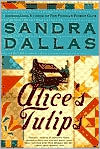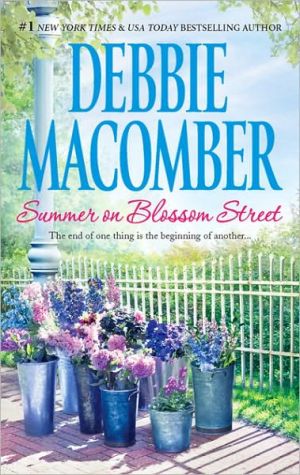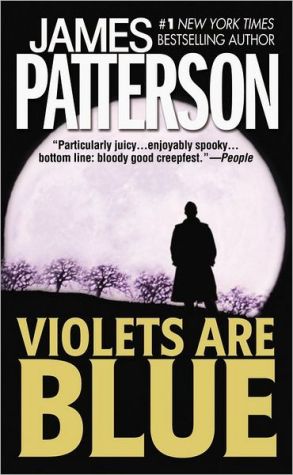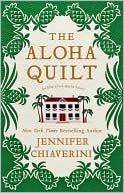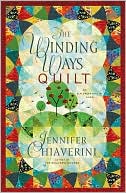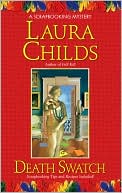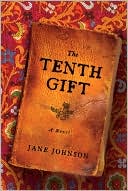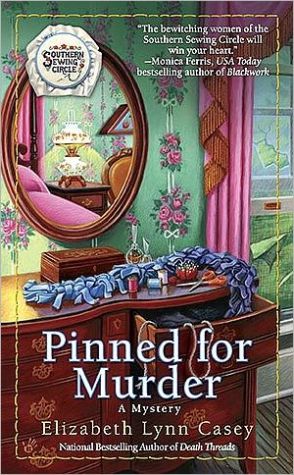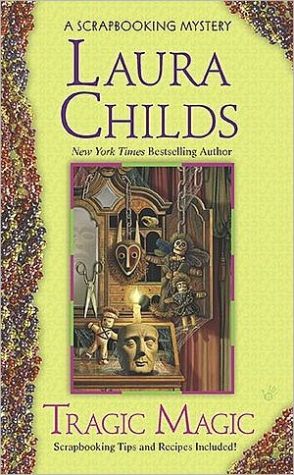Alice's Tulips
Alice Bullock is a young newlywed whose husband, Charlie, has just joined the Union Army, leaving her on his Iowa farm with only his formidable mother for company. Alice writes lively letters to her sister filled with accounts of local quilting bees, the rigors of farm life, and the customs of small-town America. But no town is too small for intrigue and treachery, and when Alice finds herself accused of murder, she discovers her own hidden strengths. Rich in details of quilting, Civil...
Search in google:
Alice Bullock is a young newlywed whose husband, Charlie, has just joined the Union Army, leaving her on his Iowa farm with only his formidable mother for company. Equally talented at sewing and gossip, and not overly fond of hard work, Alice writes lively letters to her sister filled with accounts of local quilting bees, the rigors of farm life, and the customs of small-town America. But no town is too small for intrigue and treachery, and when Alice finds herself accused of murder, she must rely on support from unlikely sources.Rich in details of quilting, Civil War-era America, and the realities of a woman's life in the nineteenth century, Alice's Tulips is Sandra Dallas at her best, a dramatic and heartwarming tale of friendship, adversity, and triumph.Publishers WeeklyLoyalty, trust and friendship are the themes of Dallas's (The Persian Pickle Club) cozy, suspense-driven epistolary novel, set during the Civil War. When her husband enlists as a Union soldier, teenage newlywed Alice Keeler Bullock must live on his family's Bramble Farm on the outskirts of Slatyfork, Iowa, with only her stern mother-in-law, Mother (Serena) Bullock, for company. Alice is lonely without the constant companionship of her sister, Lizzie, and their six younger brothers. She passes the time writing long, gossip-filled letters to Lizzie in Galena, Ill., and growing passionate about her quilting. Newly pregnant, Alice hopes that the baby will win over her fault-finding mother-in-law, but Alice doesn't make things easy for herself. She regularly boasts about her superior sewing skills, yearns aloud for fashionable clothing and speaks before she thinks. In other words, she is young and ignorant of the ways of the world, which leads to trouble with a Confederate sympathizer, Samuel Smead, who, encouraged by Alice's innocent flirtations, pursues her with an intensity that tarnishes her reputation. Meanwhile, Alice slowly makes friends with girls her own age, including Samuel's sister-in-law, Nealie, and a runaway mother, Annie, seeking shelter for herself and her blind daughter. As the story unfolds, secrets and mysteries abound, and Alice shares every joy and sorrow with her sister by letter, a credible narrative form except when Alice reproduces extended dialogue. The last third of the novel is a delicate balance between sentiment and tragedy; in some instances, the secrets spilled go over the top, with no adequate motives for why characters are so cruel. Alice is a feisty Northern counterpart to Scarlett O'Hara, however, and her irreverent humor and precise expression will keep readers entertained. First serial to Good Housekeeping; author tour. (Oct.) Copyright 2000 Cahners Business Information.\|
Alice's Tulips\ \ By Sandra Dallas \ St. Martin's Press\ Copyright © 2001 Sandra Dallas\ All right reserved.\ ISBN: 0312283784 \ \ \ \ \ Chapter One\ \ \ \ \ A Friendship quilt was presented to a beloved friend or family member on an important occasion--a marriage, an anniversary, a move west, an army enlistment, for instance. The quilt became a remembrance of loved ones left behind. Names and sometimes a sketch or sentiment were embroidered or signed in permanent ink on patchwork blocks. The blocks were assembled into the Friendship quilt, also known as a Signature, Presentation, or Album quilt. Among the most popular quilt patterns were Churn Dash (Love Knot), Double Monkey Wrench, Hole-in-the-Barn-Door, Shoo-Fly, and, after the Civil War, Sherman's March.\ \ \ December 3, 1862\ \ \ Dearest Sister Lizzie,\ Are you surprised to hear that Charlie has gone for a soldier? You knew he would do it, I told you so, but he left sooner than we ever expected. Now I am shut up with his mother on Bramble Farm, and she is no better for conversation than prune whip. If I didn't have you to write to, I think I should die. I have no close friend at Slatyfork, and you know I can't write my true thoughts to Mama or to most friends back home in Fort Madison--not after the way they passed it around why I married in haste and young, being yet sixteen, although Charlie was twenty-one. By now they know they were wrong, but I still do not think kindly of them. Me and Charlie never did anything wrong until we got married, although, Lordy, I was tempted. The day I walked into that dry-goods store in Fort Madison and saw him the first time, I knew he was my life's companion, and he felt likewise. I don't know why Mama and Papa were so set against it. After all, they approved of you marrying James when you were still fifteen, and moving off to Galena. I guess they believed James had a future but that Charlie would always be a clerk. Or maybe, me and you being the oldest and the only girls, Mama wanted me to stay at home to care for the six little boys. Well, I don't care about any of them as much as I do you, Lizzie. Me and you were always as close as two apples on a stem, and I know I can write you frank, without you giving me what for.\ My Charlie is a gay little soldier, and a tiger to fight the Johnny Rebs. Why, he is as full of fight as any swill tub, though he himself took the pledge so is dry as the ash heap. (We'll see about that after he is in the army awhile, however, for Charlie likes his good times.) They had better watch out, those Secesh. Charlie won't have a fear for his safety. He worries that the war will be over before he can get himself some scalps. Oh, I wish I could be a soldier, too, and shoot the Southern fire-eaters and be the one to hang old Jeff Davis higher than Haman. But no, I must be left behind with Charlie's mother on a farm. I wish Charlie had not gone, but to tell him to stay in Slatyfork and not enlist, well, I might as easy try to cut the morning mist with scissors.\ The folks here gave our boys a first-rate send-off. This is the biggest regiment raised in the vicinity, and the town did the boys proud. Charlie and the other recruits marched off grand. People drove in from farms and ran from the shops and stood in the road bareheaded, shouting hurrahs as the soldier boys marched smartly along. The church bells rang, and a brass band led the parade, blasting out the "Battle Cry of Freedom." Little children threw flowers, ladies waved their handkerchiefs, and gents who'd climbed on top of the bandstand in the square cried out, "Union forever!"\ Then marched the Wolverine Rangers--for that is what they have called themselves--eighty-six fine soldiers who shook the earth with their thundering footsteps. Oh, it was a fine time, with only a few scowls on the faces of traitorous copperheads. Here along the Missouri border, I am sorry to say, copperheads are as thick as princes in Germany. One of them called out, "Ho for old Jeff Davis," and a group of boys thumped him. Myself, I don't care so much about freeing the slaves, nor does Charlie, but we both say the Union must be preserved.\ It's my guess that Uncle Abe has used up all the single boys, and now he's asking the family men like Charlie (more of that presently) to sign up. Most are joining now to get their hundred-dollar bonuses, instead of waiting to be called up by the government, in which case, they would not get a plug nickel. Some call it "greenback patriotism," but I say it's little enough to pay a wife for being left behind to work Bramble Farm, and a hardscrabble farm at that. This was the last place made when the world was created, and the material ran out.\ Charlie says he will give all but ten dollars of his bonus to Mother Bullock for the farm, which doesn't set well with me. "Charlie, which one is your wife?" I asks. "Well," says he, "I don't want you to worry about any creditors, so I'll give it to the old lady." He'll keep five dollars for himself and will make me a presentment of the other five. Since it's as good as in my pocket, I spent a dollar of it at the mercantile for a hat with red, white, and blue streamers, which I wore to the parade. Mother Bullock did not approve of the purchase and scolded, saying that if Charlie doesn't come back, I will have to wear black bonnets for the rest of my life, and who would give me back my dollar?\ "I would wear black for only a year at most, for there are others to take Charlie's place," I reply, with a wink at Charlie. He laughed, but Mother Bullock scowled. She spent a nickel on a flag to wave at the parade, which is a bigger waste of money, for I can wear the bonnet ever so often (if Charlie doesn't get killed, that is, and I believe the bullet has not been molded that can harm him), but she won't wave that flag again until the war ends.\ Sister Lizzie, what do you think, I was asked to make the battle flag for the Wolverine Rangers! Charlie said when the subject of it came to be discussed, he rose right up and volunteered my name. Then Harve Stout--he was the lightning rod agent before he joined up--said his new wife, Jennie Kate, sews better. (The talk is Charlie was sweet on Jennie Kate before he went to Fort Madison, but it was the other way around. She was sweet on him, but he didn't care for her any more than a yellow dog. My presence in Slatyfork as Mrs. Charles Bullock, a bride of one year, does not sit finely with her.) Charlie spoke up for me, and even though I have been here only two months, I was requested to make the flag. It is handsome indeed, with the head of a wolverine, cut from red madder. I applied the head onto canvas, using good stout thread; the flag may get shot up by the Rebs, but that wolverine will never ravel. Charlie carried the colors in the parade, and as he passed by, he dipped the flag to me, although Mother Bullock thought he saluted her. Well, let her, the old homed owl.\ The night before Charlie left, I gave him the Friendship quilt I had worked on in secret, and told him it was my love letter to him. Your block with your name and sentiment arrived just as I was assembling the pieces. I was in a busy time, as I was making drawers and blouses for Charlie, too, but I wanted the quilt to be perfect, so that meant making the blocks myself. You saw them. They were the Churn Dash pattern, in blue and brown and cheddar yellow. Don't you think that's a pretty combination? After I made the blocks, I passed them around among Charlie's friends to be signed. Some drew pictures and wrote verses. One neighbor printed an X, and wasn't she the embarrassed one at doing it? Mother Bullock spoilt the fun by writing "Mrs. E. Huff" over the sign, so no one would know. I set up the quilt frame at Aunt Darnell's house to keep it secret from Charlie, and ladies from the town came to stitch for an hour or two. Most did a good job, but I had to rip out the work of one because her stitches were long as inchworms, with knots the size of flies. Lizzie, you know I am not vain except for my sewing, and I think I can't be beat at quilting. My stitches were the finest, even though, being in a hurry to finish, I took but eight stitches to the inch instead of twelve, as I usually try to do. When no one was about, I tucked powerful herbs and charms into the batting to keep Charlie safe. My husband pronounced the quilt a peach, fit for the bed of a king, and he is never going to lay it on the ground but what it has a gum blanket beneath. He says he will sleep every night with my name over his heart. Did you ever hear such a pretty speech? My patch is in the center, like a bull's-eye. Yours is beside it. Mother Bullock's is on the side. Jennie Kate Stout wrote:\ \ \ \ \ Well, he won't see it often, because it is at the bottom of the quilt, and when he does see it, he will think what a sloppy wife she would have made him, because the ink was smeared. She asked for a second square to sign her name, but I said I hadn't any extra.\ I used leftover scraps to make Charlie a cunning housewife that is brown with blue pockets, bound in red twill, and it rolls up nice and fastens with hooks and red strings. Inside, the housewife is fitted up with needles and pins and thread so Charlie can mend his uniform if he gets shot. It's told that many soldiers go ragged because they won't sew for nothing, but Charlie sews as good as a woman. Remember when he boarded at the McCauley farm so that he could be close to me? The McCauley girls jollied him into learning to work a needle. Mattie McCauley says if a woman can plow, a man ought to know how to thread a needle. But how many do? I ask you.\ That last night, after she gave Charlie a fork and spoon to take with him, Mother Bullock walked out to visit her sister, Aunt Darnell, giving me and Charlie time alone, as she should, since we haven't been married so long, and I expect he'll be away for some months. Then she sent word by a man who was passing by that she was took tired and couldn't walk home, so was spending the night there. That was a good thing, because it gave me and Charlie the night alone without the worry of rattling the corn shucks in the tick when we got to romping. (Now, Lizzie, I said I would be frank, so you musn't take offense, and besides, you have wrote me about you and James and that business under the parlor table. I wanted to try it with Charlie, but I've told you how I thrash about so, and I was afraid I would bang my head on the underside of the table and break it--my head, that is.) That's when I told Charlie he was one of the family men who'd enlisted. Now you musn't say a word about it, because I don't want Mother Bullock to know awhile yet, for she is always one for acting proper and would make me stay away from the town. Charlie says it will be a boy, and he wants to name him for his brother Joseph. That's to please Mother Bullock, because Jo was her favorite, and she misses him. Well, I'm sorry he got drowned, too, for if he was on this earth yet, me and Charlie never would have left Fort Madison to help her with the farm. But I don't think we have to name my baby for him.\ I told Charlie I fancy something patriotic for the name. "How does Abraham Lincoln Bullock suit you?" I asks.\ "Not unless he's born with a beard and top hat," replies Charlie. I think maybe I will be like the Missouri Compromise and try to come up with something to please everybody. How do you think Mother Bullock would like the name Liberty Jo? Maybe, like the Compromise, when the day is over, it won't suit anyone.\ When we took Charlie into town in the morning to climb aboard the wagons that took the boys away, he gave me a good squeeze and says, "Now, Doll Baby, you got to promise not to step whilst I'm away." I reply real saucy, "When dead ducks fly! But I guess I can give my word not to step with a Reb." Then I told him to promise he would come back with both his legs. You know how I love to dance, and I won't be tied to a cripple with a stump. "Oh cow!" says I, "I'd rather deliver you up to the jaws of death than to see you hobble back on a pegleg." Charlie laughed and promised his strong Yankee legs would keep him safe.\ Mother Bullock said she'd welcome back her son in any condition, which put me out of sorts, because it was only a joke I'd made. She is as sour as bad cider when she wants to be, that one, and she is only the mother, not the wife. But I feel sorry for her, because if Charlie falls, she will never more have a son, and I could have plenty more husbands, I suppose, although I don't want any but the one I have. Well, Charlie thought it was funny, and he was glad I sent him off with a laugh and not tears and lamentations, like some I could name--Jennie Kate Stout, for one. He said I have the right kind of pluck and will do fora soldier's wife. I replied he is brave and true and will do for a soldier.\ \ \ This from the proud wife of a Yankee volunteer, your sister, Alice Keeler Bullock\ \ \ December 12, 1862\ \ \ Dear Sister,\ Oh cow! Lizzie, I shrieked so loud when I read your letter that Mother Bullock came running, as if I'd gotten tangled up in a mess of hoop snakes. To think that mousy little Galena leather shop clerk and bill collector, who lives just around the corner from you, is the famous Gen. U. S. Grant! Just wait till I write Charlie. He'll get a promotion for sure when he tells the officers his wife's sister is as close as stacked spoons with the wife of "Unconditional Surrender" Grant. Isn't she the one that won't look you straight in the eye because she has a cast in hers? Which one is it? I didn't like her much when I met her at the sewing at your house. The general called for her, and he smelled of tannery and pipe smoke, and hadn't a word to say to anyone. Mother Bullock, who read a newspaper even before Charlie went off to war, knows all about General Grant. When I told her his wife was as good as your best friend, she said you should order General Grant to make Charlie write home. I said General Grant could do that, or he could win the war, but we oughtn't to expect him to do both.\ Charlie has been at camp in Keokuk. That is all we know, because he does not write, although he sent sixty dollars of his bonus money by way of a fellow who returned to Slatyfork on account of he had the quick consumption so bad, he was rejected. Charlie loaned out the rest. His generosity is greater than his prudence, Mother Bullock says. Harve writes Jennie Kate regular, and she calls on us each time she is in receipt of a letter. She gloats over them.\ Well, Lizzie, I am worked like a mule here, but I don't complain, because I won't let Mother Bullock call me indolent. You know I always did my share at home, but I was fed up with farming, and I thought it a piece of luck that I married a fellow in the dry-goods business. Now don't misdoubt I love Charlie, but fit had known he was going to go to farming, maybe I would have thought about it harder. No, that's not so. I would have married Charlie no matter what, because I was crazy about him. He has a pretty smile and the nicest hands I ever saw on a man, And he is quicker on his feet that anybody I ever danced with. And he was real generous when he measured piece goods for me, always adding a little extra. But I don't suppose all that extra added up to more than a dollar, so it looks like I got bought for a farm wife for eight bits. That's a good trick on me, isn't it?\ We have a hired man living in a shack by the barn. He is a veteran that got hurt at Shiloh, and he's gimpy, and hard work does not agree with him, but he's all we can get with the war on. Then there's a free Negro that helps us out, too, in payment for Mother Bullock letting him farm a piece of our land. He's better than an Irishman, I suppose, although not much good can be said for either race. The hired man takes his Sunday dinner with us, but I put down my foot about the Negro. Slavery's wrong. I believe that. But that doesn't mean we have to let them sit at table.\ The men are no help to me, because I do the inside work, and I never knew a man who was worth a red copper at the laundry tubs or cookstove. No, I should say the hearth, for there is no cookstove. Now you know how I hate cooking over an open fire. When I asked Mother Bullock why she never got a stove, she said they were dangerous. I have burnt a hole the size of a pawpaw in my brown dress, and my arms ache from lifting the heavy pots and chopping wood. Mother Bullock criticizes everything I do, until one day last week, I had had enough. She had accused me of not testing the heat in the brick oven in the hearth before putting in the bread. "Do it this way," says she, thrusting her hand into the oven.\ "Do it yourself, then," I reply pertly, which drew a stern look but no rebuke. To redeem myself, I boiled up a kettle of black walnut hulls yesterday to make a dye, then colored a length of homespun, and will make a dress for Mother Bullock.\ You have asked about my health. I am feeling finely, with the constitution of a hog. This morning, my stomach felt queer, but maybe I should not have lifted the heavy kettle. You say let them pamper me all I can, because they don't do it for the second baby. Well, who is to do the pampering? I ask you. Not Mother Bullock. I guess you are talking about the hired hand or the Negro. Maybe the hogs.\ As tired as I am of an evening, I still go to piecing, even if it's only for a few minutes. I am never so tired but what I feel better when I have my pretty needlework about me. Last evening after supper, I spread the scraps around whilst I searched my head for a pattern. Mother Bullock commenced to read the Bible aloud, and we sat in sociable companionship for an hour. After she closed the Book, she went to her room and came back with an old split basket and thrust it at me. Inside were pieces of a quilt. "My angel mother cut them out just before she died. I wasn't yet a year old then," Mother Bullock says. Mother Bullock does not do fancy stitchery, so she let them sit all these years.\ Lizzie, they are chintz flowers, cut from whole goods for one of those coverlets of the old-fashioned kind, such as Grandma Keeler had. I was so pleased that I gave Mother Bullock a hug, the first time I have done such a thing. She pulled away and turned aside and smoothed her dress, since she is not one for sentiment. "I always thought time was better spent in such other than fancy sewing," she says to me. "But I see it pleases you, so where's the harm in it?"\ I reply, "Sewing pleasures me, it does," and told her how I won the first-place medal for my sampler at Miss Charlotte Densmore's Academy in Fort Madison, where Mama hoped I would be turned into a lady. I did not mention how many times Miss Densmore rapped my head with a thimble for whispering or for making what she called "gobblings" of my first lumpish attempts.\ "Where's it at, that sampler?" asks she.\ "In my trunk."\ "Get it, then."\ I was surprised, because Mother Bullock had never displayed interest in my work, but I took it out and showed it to her. She ran her hand over the stitches and read the little verse. Do you remember it? It goes:\ \ \ Then let us all prepare to die Since death is near and sure And then it will not signify If we were rich or poor\ \ \ I never liked it.\ But Mother Bullock nodded her approval, for she broods over death; she seems to enjoy brooding. "Well, if it's won a prize, it might could have a frame to it," she says. I decided right there to make those cut pieces into a quilt for her.\ But then Mother Bullock spied this letter I had just started to you, and she says real sour, "You ought to write your husband oftener than you do your sister."\ So I tell her, just as tart, "I have wrote him four times already. Lizzie writes back. Charlie doesn't."\ This morning, Mother Bullock took the buggy to town, and she came back with a little frame. She put the sampler inside and hung it on the wall. Now, Lizzie, here is the thing of it: It's a real nice frame, not a cheap one, either, but there is no glass.\ You ask what is her appearance. We don't look a thing alike, me and her. I am still as short as piecrust, just five feet tall, with chestnut hair (that is turning black from living in a dark log house with only an open fire for heat), and my eyes are still blue as a doll baby's. She is four or five inches taller, with wheat-colored hair and eyes, and skin as dark as an Indian because she goes about with her head uncovered. She is fit, although dried up, but then, she was twenty-five when Charlie was born and now is almost fifty, so lucky to be alive.\ \ \ Accept the best of love from your affectionate sister, Alice K. Bullock\ \ \ December 25, 1862\ \ \ Dear Lizzie,\ I have never had such a dull Christmas in my whole life. First off, the weather was miserable. I love a good snow, but we got sleet. I was chilled driving to church, where there was no heat because the stovepipe had come loose. Afterward, we went to Aunt Darnell's for dinner. We had roast pig that was all fat and no lean, and suet pudding, and desiccated vegetables from the army, which she had got hold of somehow. The Lord knows why. I called them "desecrated," which is a joke I heard, but nobody else thought it was funny.\ They take Christmas serious around here. It's all Bible reading and prayer. No parties, not even a round of visits. I asked Mother Bullock to open the black currant wine we had made (for medicine, of course) before Charlie left, but she would not, saying as both she and Charlie had taken the pledge, she did not believe it acceptable for Charlie's wife to imbibe. No matter, as it would not have gone with our supper of cold corn bread, Irish Murphys roasted in the ashes, and sauerkraut. Besides, we did not get a single caller to wish us Happy Christmas!\ I gave Mother Bullock a nice pocket I had made for her. She presented me with a Testament, saying she thought I did not have one of my own because she never saw me study it. Well, I do, and now I have two, and I don't care to read either one of them. Mama and Papa sent me a copy of The American Frugal Housewife, which I think I shall use to start a fire. I know more about cooking than Mama ever did, for she was either having babies or primping. She still has not forgiven me for marrying Charlie, but I never cared so much for her good opinion as for yours, and you love Charlie like a brother.\ The only good thing about Christmas was your gift of the silk corselet, which is the prettiest I ever saw. When I unwrapped it and held it up, Mother Bullock's eyes grew as big as half-dollars. I don't know where I'll wear it in this godforsaken place. Maybe I'll put it on over my nightdress and prance around the room.\ Were you the hit of the season in your scarlet velvet dress? Oh, I wish I could have seen you. And did James give you the diamond ring you fancied? Now, Lizzie, you naughty girl, did you do like you said and tell James on the way to the ball that you were not wearing your drawers? He must have been in a state all evening, and crazy with jealousy every time you danced with someone else! Since the ball was at the Customs House, what you wore (or didn't wear) must have been a federal offense. You must tell me how it was when you got home, and don't spare the details. Were you shameless? Oh, I do miss Charlie that way.\ Mother Bullock thinks I have gone to my room to spend time with the Testament. Well, I haven't. I'd rather pout than read the Bible.\ \ \ Don't forget me, my dear sister, and I shall never forget you.\ Alice Keeler Bullock\ \ Continues... \ \ \ \ Excerpted from Alice's Tulips by Sandra Dallas Copyright © 2001 by Sandra Dallas. Excerpted by permission.\ All rights reserved. No part of this excerpt may be reproduced or reprinted without permission in writing from the publisher.\ Excerpts are provided by Dial-A-Book Inc. solely for the personal use of visitors to this web site. \ \
\ From the Publisher"Witty and engaging...The details of Civil War life are richly presented, and the characters who people Alice's letters are relayed with charm." —Houston Chronicle\ "Alice is a feisty Northern counterpart to Scarlett O'Hara...and her irreverent humor and precise expression will keep readers entertained." —Publishers Weekly\ \ \ \ \ \ Publishers Weekly\ - Publisher's Weekly\ Loyalty, trust and friendship are the themes of Dallas's (The Persian Pickle Club) cozy, suspense-driven epistolary novel, set during the Civil War. When her husband enlists as a Union soldier, teenage newlywed Alice Keeler Bullock must live on his family's Bramble Farm on the outskirts of Slatyfork, Iowa, with only her stern mother-in-law, Mother (Serena) Bullock, for company. Alice is lonely without the constant companionship of her sister, Lizzie, and their six younger brothers. She passes the time writing long, gossip-filled letters to Lizzie in Galena, Ill., and growing passionate about her quilting. Newly pregnant, Alice hopes that the baby will win over her fault-finding mother-in-law, but Alice doesn't make things easy for herself. She regularly boasts about her superior sewing skills, yearns aloud for fashionable clothing and speaks before she thinks. In other words, she is young and ignorant of the ways of the world, which leads to trouble with a Confederate sympathizer, Samuel Smead, who, encouraged by Alice's innocent flirtations, pursues her with an intensity that tarnishes her reputation. Meanwhile, Alice slowly makes friends with girls her own age, including Samuel's sister-in-law, Nealie, and a runaway mother, Annie, seeking shelter for herself and her blind daughter. As the story unfolds, secrets and mysteries abound, and Alice shares every joy and sorrow with her sister by letter, a credible narrative form except when Alice reproduces extended dialogue. The last third of the novel is a delicate balance between sentiment and tragedy; in some instances, the secrets spilled go over the top, with no adequate motives for why characters are so cruel. Alice is a feisty Northern counterpart to Scarlett O'Hara, however, and her irreverent humor and precise expression will keep readers entertained. First serial to Good Housekeeping; author tour. (Oct.) Copyright 2000 Cahners Business Information.\|\ \ \ Library JournalFans of Dallas's previous novels (The Diary of Mattie Spenser) will not be disappointed here. Alice is a young woman whose husband of one year has just joined the Union army and left her alone with his forbidding mother on the family farm. Told in letters to her sister, Alice's story is at first one of everyday hardships and small triumphs but soon turns darker when she is suspected of murder. As an outsider who married into the small, tight-knit community of Slatyfork, she would have required much less than the suspicion of murder to turn her neighbors against her. Her one solace is quilting, and each chapter begins with an explanation of a quilting pattern that is then incorporated into the story. Day-to-day life during the Civil War is well represented, with the ever-present fear of looters, food shortages, and worry for the absent men. Above all, there is Alice, a plucky heroine if ever there was one, and readers will cheer her on. Those who enjoyed Jane Roberts Wood's The Train to Estelline (Univ. of North Texas Pr., 2000) and Robert Morgan's Gap Creek (LJ 9/1/99) should find plenty to satisfy here. Recommended for all public libraries.--Wendy Bethel, Grove City P.L., OH Copyright 2000 Cahners Business Information.\\\ \ \ \ \ School Library JournalAdult/High School-The significance of a planting of yellow tulips in an Iowa garden becomes evident at the end of this beguiling novel of the Civil War home front. Immature, overconfident, congenial, and flirtatious, newly wed 18-year-old Alice is left with her stern, repressive mother-in-law on a small farmstead when her husband Charlie "goes for a soldier." The book is comprised of the letters Alice writes to her sister over a period of three years to relieve her frustrations and to offer advice on fashion, love, and society. Alice is an outstanding quilter and each chapter is prefaced with a paragraph of information on quilting details. The letters take readers through wartime difficulties of isolation, food shortages, cruel gossip, loss of reputation, and the complexities of a small, closed community. Through the occasional letter from Charlie as he enters into Army life on the Union side, readers see the rigors of camp life, horrors of battle, and imprisonment in the notorious Andersonville prison camp. Alice's growth, brought about by these circumstances, is natural and understandable, as is the slowly emerging bond of affection between the young woman and her formidable mother-in-law. This unfolding maturity of insights lends realism to the light concerns of fashion, sociability, and other trivialities that engage interest in the opening pages.-Frances Reiher, Fairfax County Public Library, VA Copyright 2002 Cahners Business Information.\ \ \ \ \ Kirkus ReviewsFrom Dallas (The Persian Pickle Club, 1995, etc.), a transparently homespun tale of pioneering women facing tough challenges when their men go off to fight for the Union.\ \
